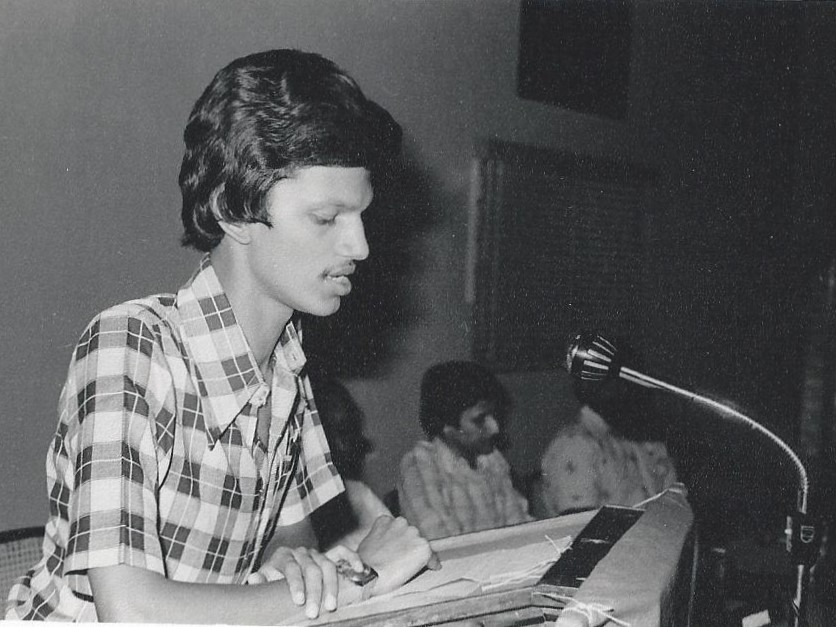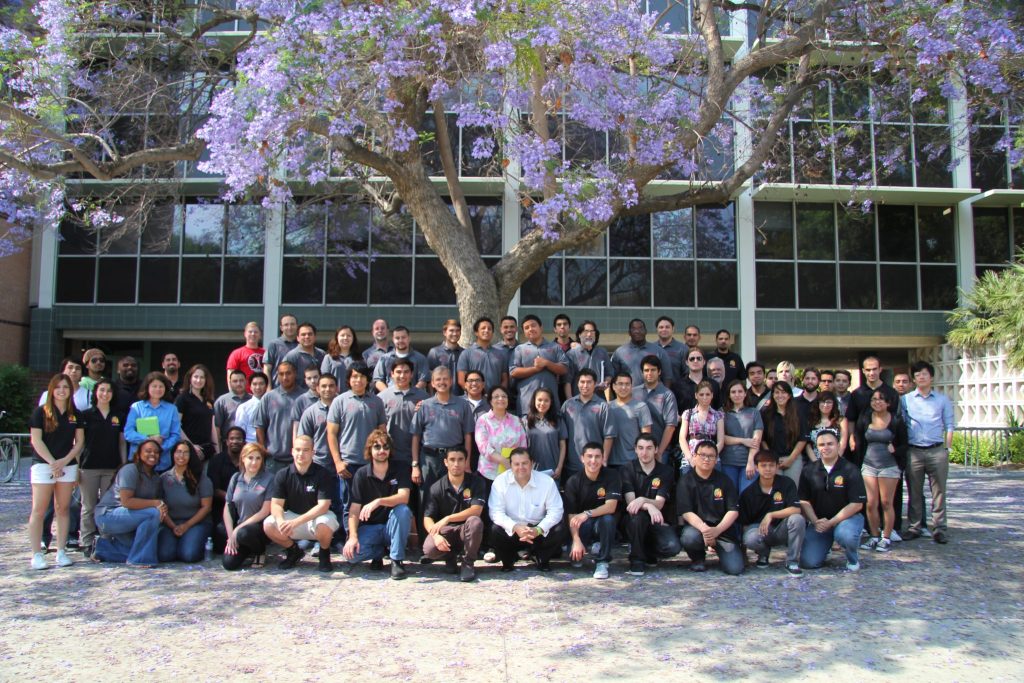S. K. Ramesh’s interest in communications and electrical engineering began as a child, when he would listen to the radio with his family. His family’s influence not only encouraged a fascination with electronics but also with communication. His father frequently told him that he needed to be able to communicate efficiently no matter the discipline he went into as a career. To encourage this, Ramesh’s father would have him write short reports on what he had learned from the radio programs.
His love of radio led Ramesh to earn a bachelor’s degree in electronics and communications engineering. While in college, Ramesh shared his radio with his friends by rigging wires so that they could listen to the music in other rooms.
Shaping His Career
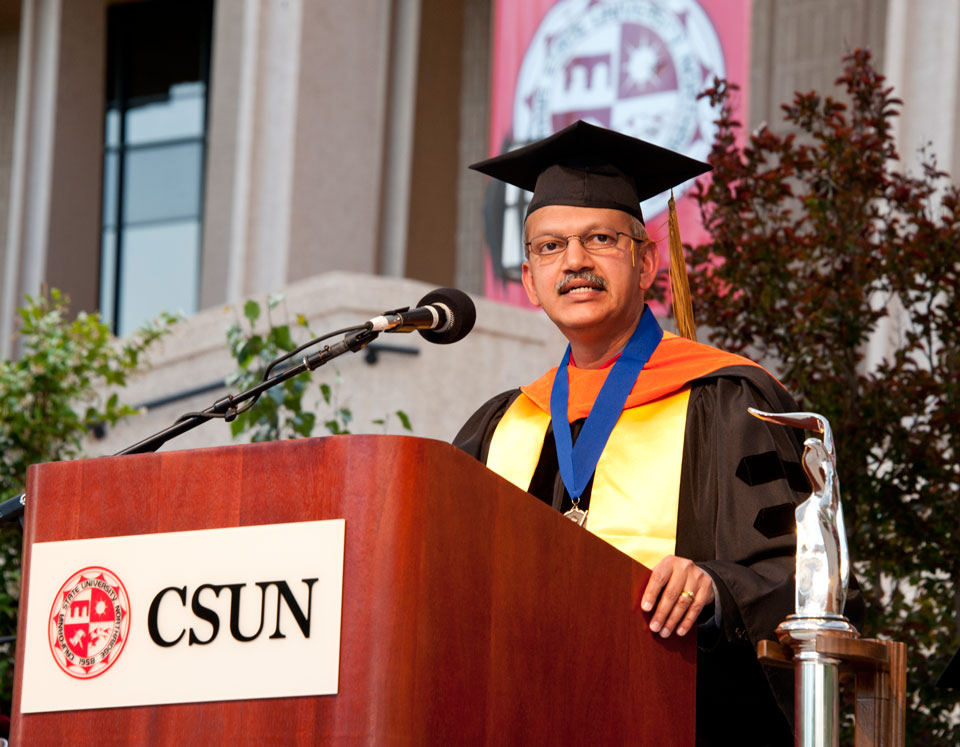
Ramesh’s teaching career began while he was still a student at Southern Illinois University Carbondale. He worked as a graduate assistant while earning his M.S. in electrical engineering and then as a full-time visiting instructor while earning his Ph.D. in electrical engineering.
After earning his Ph.D., Ramesh accepted a position at California State University Sacramento in the electrical engineering department. In addition to his role as a professor, Ramesh was a graduate coordinator and later became department chair of the Electrical Engineering Department. In 2006, Ramesh was selected as the dean of the College of Engineering and Computer Science at California State University, Northridge.
A Focus on Family
Ramesh met his future wife, Utpala, while studying at Southern Illinois University Carbondale, and they started their family in California. Ramesh credits his success to his family in both India and the United States. “Without them, all of the accomplishments, whatever you call them sort of pale in significance, because you can’t do the things you need to do without family,” he said.
Ramesh and Utpala share two adult sons, Arvind and Anjan; daughter-in-law, Mary; grandson Amari and granddaughter Anaya, who was born just a few weeks ago. They have a family tradition of traveling to St. Louis to watch the Cardinals play, even though his sons grew up in California. In between trips, Ramesh and his sons find local baseball games to watch together.
Making a Difference
In addition to his current role as professor of electrical and computer engineering at California State University Northridge (CSUN), Ramesh also serves as the director and lead principal investigator of the nationally recognized “Bridging the Gap: Enhancing AIMS2 for Student Success” program, which was recognized with the 2021 UEDA Award of Excellence and 2019 Example of Excelencia. Ramesh founded AIMS2 in 2011 after he noticed significant equity gaps in the college’s graduation rate for underrepresented minoritized students. AIMS2, which stands for Attract, Inspire, Mentor and Support Students, strives to close this gap through mentoring by faculty advisors and working with local community colleges for a seamless transfer experience.
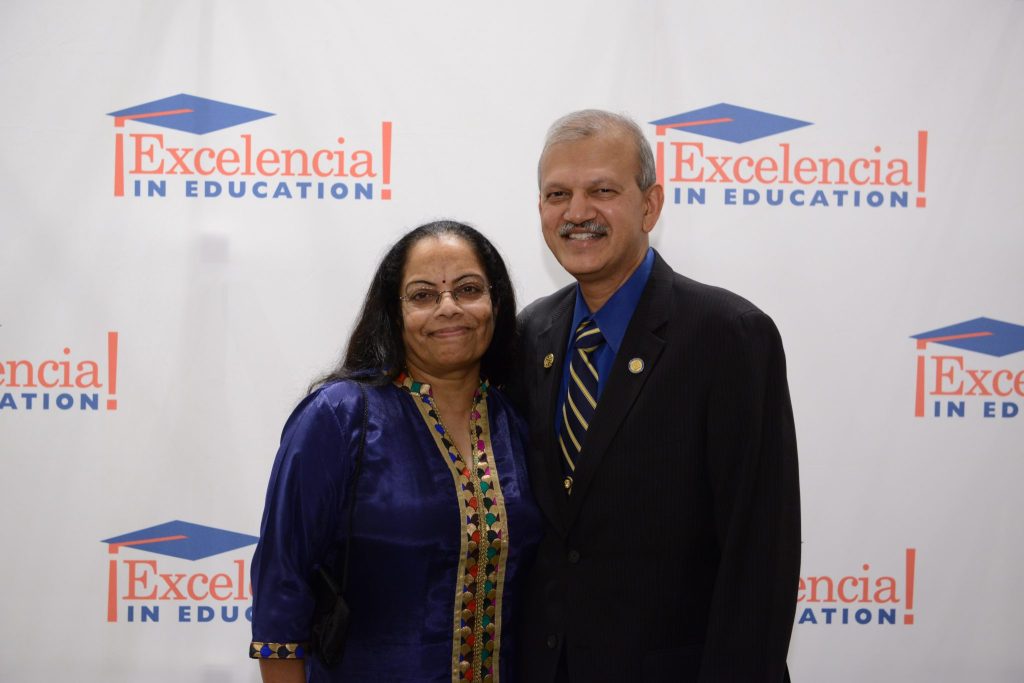
AIMS2 offers services such as undergraduate research in addition to faculty mentors. It also provides cohorts for students who need a support system. “AIMS2 was to build community, to build a sense of belonging,” Ramesh said. The faculty mentors, however, are not necessarily in the same discipline as the students. For example, a student in electrical engineering may have a mentor in the computer science program. This is because Ramesh wants the students to know what other disciplines are doing to prepare them for their post-graduation career.
The AIMS2 program was funded by grants from the US Department of Education that will come to an end at CSUN in December, when the program has fulfilled its goals. Continuing his mission to help students, Ramesh is already working on a new program called SECURE For STEM Success (SFS2). SECURE stands for Strengthening Equitable, Culturally Responsive Environments. This program builds on the work of AIMS2 and will focus more on graduate students. “I’m hoping we can get some of these students into doctoral programs so they can return as faculty members and inspire future generations of students in STEM disciplines,” Ramesh said.
Giving Back to His Profession
Ramesh joined IEEE as a founding member of the association’s student branch at his university as an undergraduate in 1978. During his senior year, Ramesh served as the editor-in-chief of the department technical newsletter, “Bandwidth.” “My fascination with Communications Engineering grew in large part to my membership in IEEE and ultimately led me on the path to graduate studies in the USA,” Ramesh said. He has since served on the IEEE Board of Directors, as well as vice president of IEEE Educational Activities and president of IEEE-HKN, the honor society for Electrical Engineering.
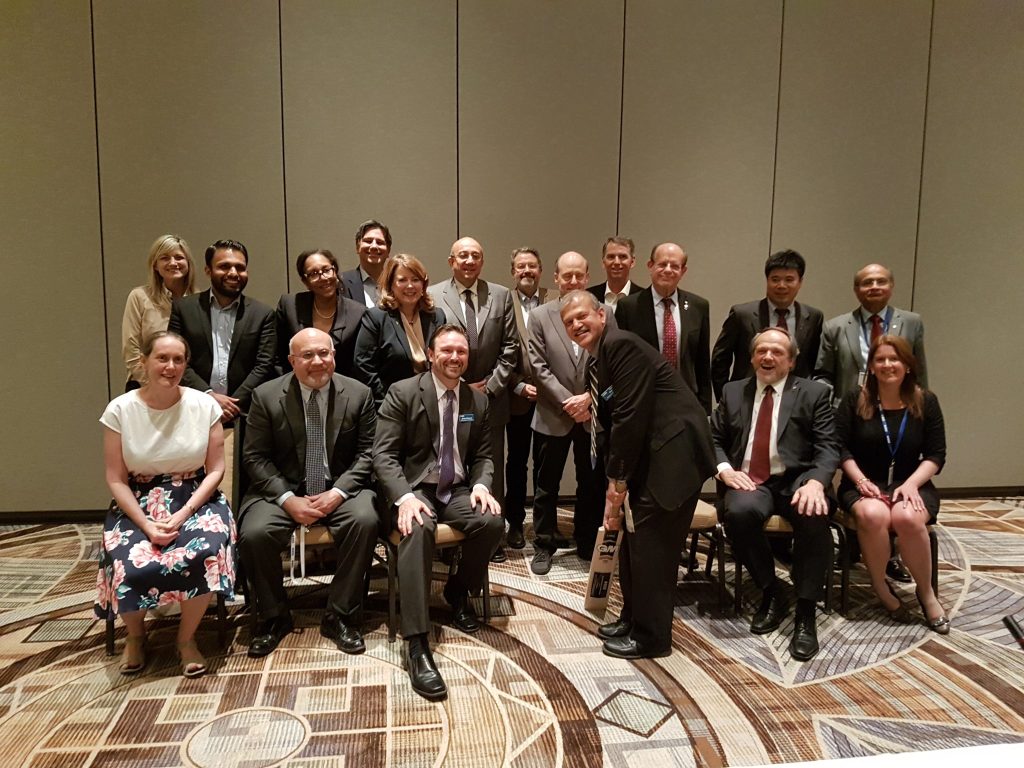
In 2016, Ramesh championed the IEEE Learning Network (ILN) initiative to “create a one stop shop for members to access the vast technical content in IEEE’s fields of interest.” The ILN provides hundreds of continuing education courses for purchase by IEEE members and non-members. The initiative includes courses involving STEM disciplines in addition to telecommunications. It was through IEEE that Ramesh was selected to serve ABET in 2010 as a program evaluator. He went on to serve as a program evaluator on several U.S. and international ABET accreditation visits before IEEE appointed him to the the Board of Directors and after restructuring to the Board of Delegates. Ramesh has served on the Finance and Governance committees, ABET’s Global Council, and was part of ABET’s Inclusion, Diversity and Equity Advisory (IDEA) Council from 2020 to 2021, and chair of the Engineering Area Delegation when he was elected 2021-2022 ABET President-Elect.
Ramesh, along with the other ABET presidents, will work to further integrate Diversity, Equity and Inclusion (DEI) into ABET’s accreditation criteria. “We have proposed changes to the criteria, but it needs to be broadly implemented so that no matter what commission you’re in — engineering, computing, applied and natural science, technology — DEI is inclusive and pervasive across all of them, and harmonized,” Ramesh said.
While he is president, Ramesh plans to strive for consensus, which he already considers the association’s biggest strength, by taking into consideration all opinions. “I truly view this as a team effort of volunteers and staff working together,” Ramesh said. “And I come in very humbly as a servant leader, someone who wants to learn from my colleagues because I don’t have all the answers. I don’t pretend to have all the answers. The answers are actually in our community.”
